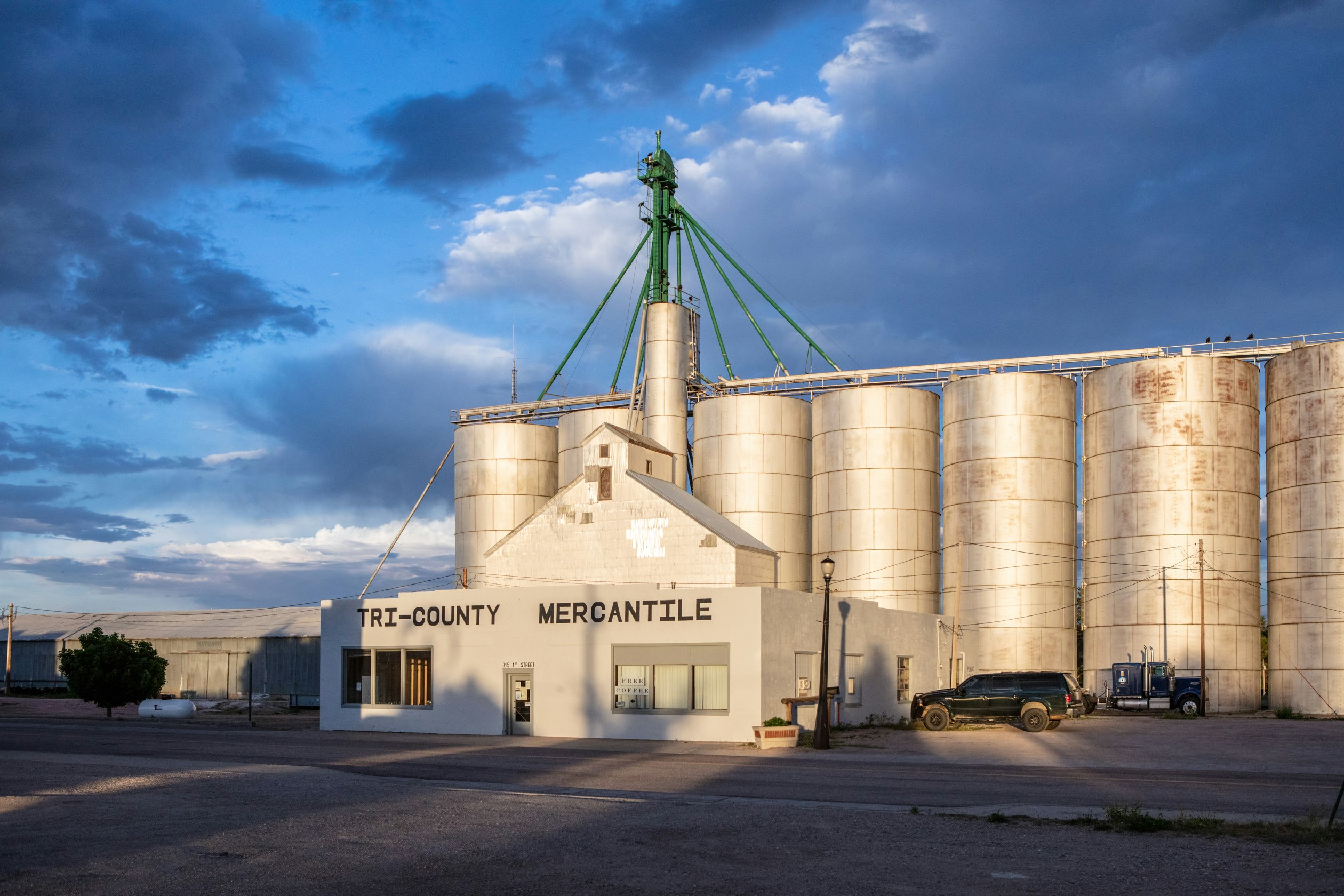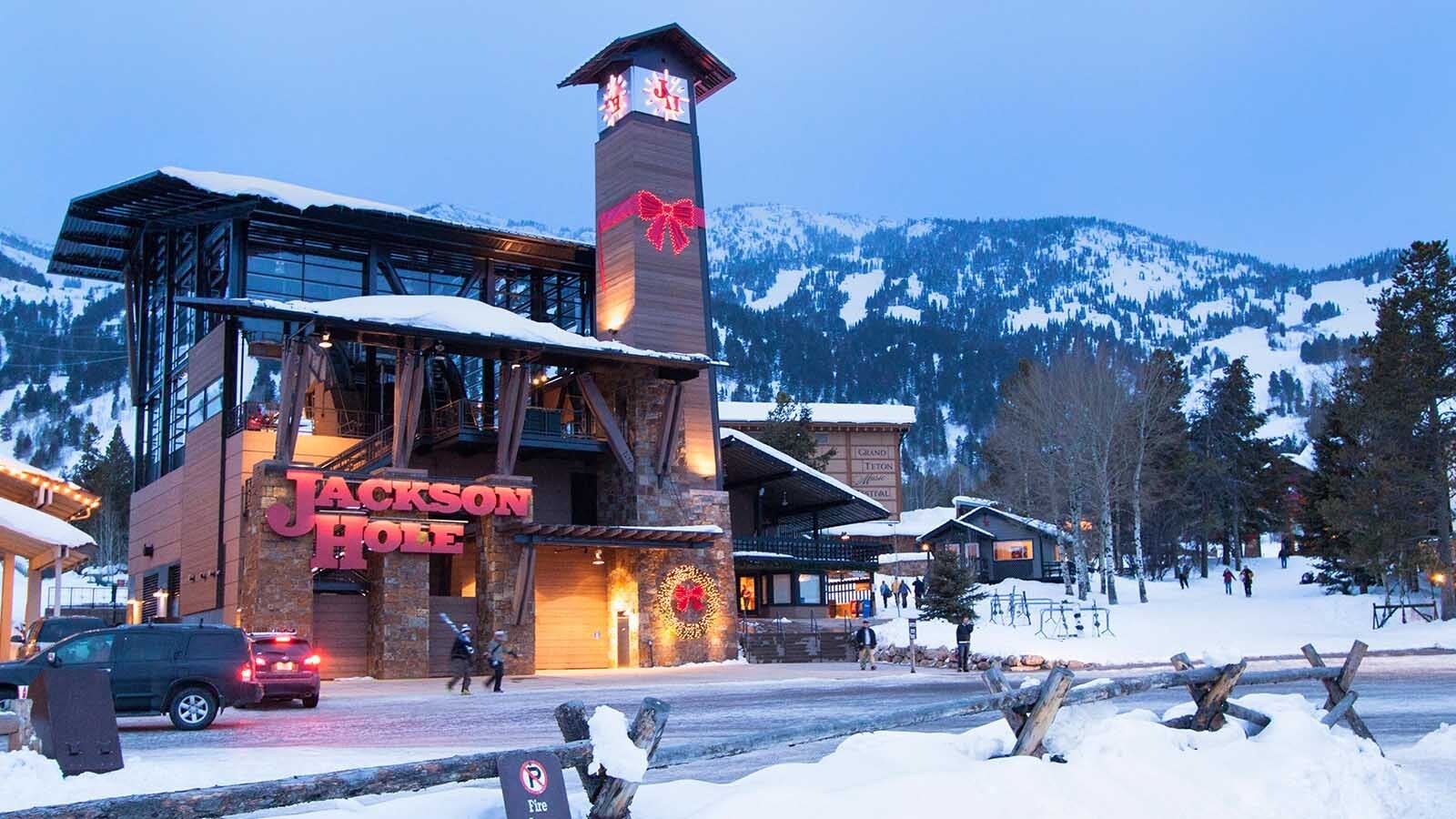*This is the second part of a three-part series
Arden and Jesse Miller grew up in Chugwater. Arden was born there, and Jesse moved from Oregon to Wyoming in the third grade. The pair started dating when they were 17 and today, two decades later, they are married with three boys ranging in age from 4 to 9 and live on Jesse’s family’s ranch outside of town.
After finishing high school, Jesse became a mechanic and worked at Cheyenne’s Frontier Refinery until he got laid off. Now, along with co-owning the recently reopened Tri-County Mercantile, he works full time as a rancher and truck driver while Arden drives a school bus part-time. The family lives in the home where Jesse grew up.
They remember First Street when it was still a gravel road and can rattle the former names of the handful of restaurants and businesses. Arden has pretty much worked at all the restaurants in town at one time or another.


Arden lives about a mile from where her great-grandparents homesteaded.
They likely were part of the group of original homesteaders who answered a 1914 advertisement offering 400 lots of land in the “gateway to Platte County’s great dry farming district.”
Arden’s dad used to work at the grain elevator until it shut down a couple decades ago. Now, Arden and her husband Jesse and business partner Josh Hopkins own it, along with the former Conoco station, the Mercantile and other outbuildings.
Arden joked about running into an older couple the other day at a branding who told her they remembered her and her brother as little kids playing in mud puddles in the parking lot. She cheekily told them that now that she owns it, maybe she’ll play in those mud puddles again.
The couple had not even thought about buying the grain elevator or old mercantile until Hopkins put the bug in their ear.
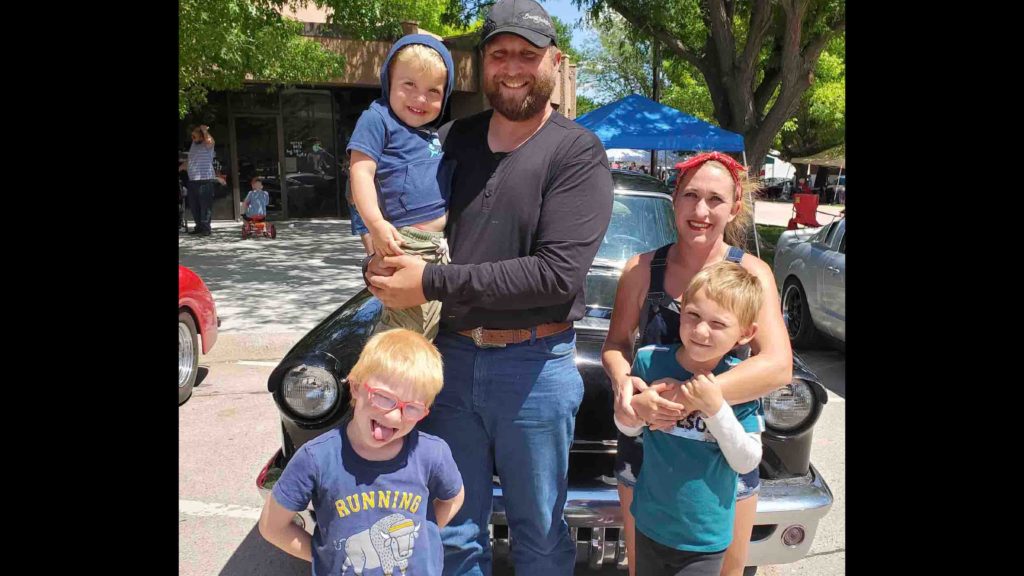

They’d met Hopkins in downtown Cheyenne when Hopkins stopped to admire Jesse’s 1952 Mercury. The couple were on their way to a car show and had stopped briefly at Jesse’s mom’s furniture store. Arden saw a “tall skinny guy” with a camera walking down the street who asked if he could take some photos of the car. They said sure and that was pretty much the end of the conversation.
A couple months later, a friend brought Hopkins, then a new Chugwater resident, by to introduce him to the Millers. Arden recognized him immediately as “camera Josh.” Immediately, they became friends.
“We pretty much adopted him,” Arden said.
Hopkins had an idea about opening the former Mercantile and reached out to property owner John Voight, who had no interest in leasing to them but instead wanted to sell them the entire place – the store, elevator, grain bins, former Conoco station and other buildings.
Voight liked the fact that the Millers had grown up in Chugwater and appreciated the fact that the three wanted to reopen the store and do something to help revive the small town.
“He told us he’d make us an offer we couldn’t refuse,” Arden said.
He was right. He sold them the whole property for $150,000.
Voight wanted to see the town continue to rebuild and prosper, she said.
The Next Generation
The Millers and Hopkins are among a group of new or returning residents to Chugwater committed to investing in the community to help it grow while preserving its history.
The Hopkins and the Millers have spent the past several months readying the Tri-County Mercantile for its grand opening, which coincides with this weekend’s 36th annual Chugwater Chili Fest.
They had a ‘soft’ opening last weekend with a bare-bones inventory on the shelves. Along with livestock antibiotics, needles, syringes, tags and other ranching supplies, they have some basic staples such as milk, eggs, butter, half-and-half, ketchup and other sundries that would otherwise be available only to those willing to drive more than 20 miles to a store.
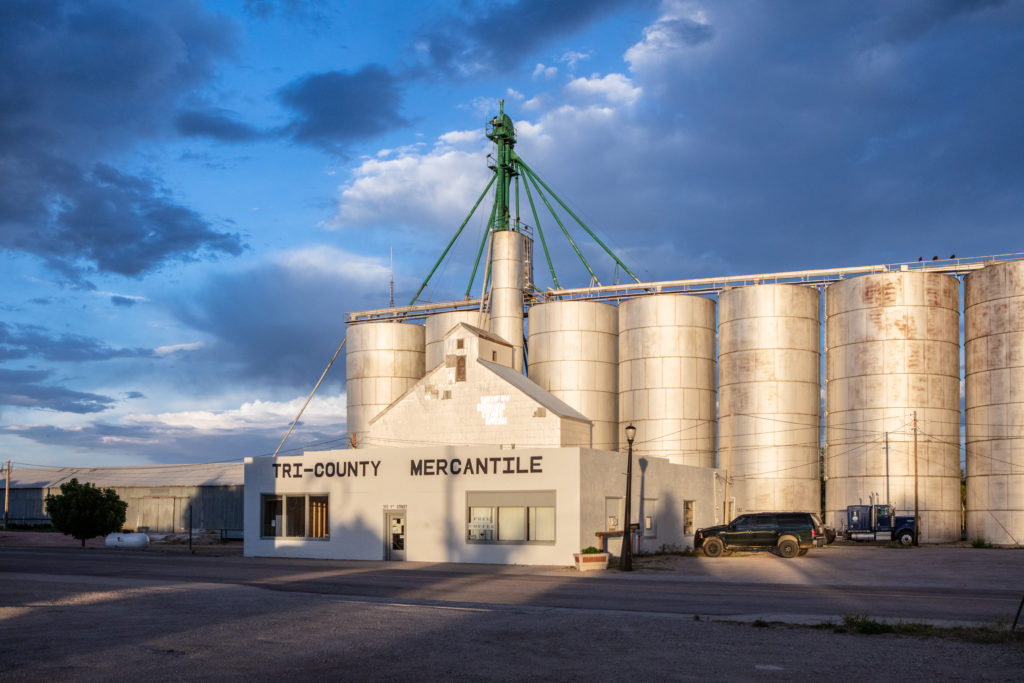
They’ll continue working to stock the store with more ag supplies and other products. They are also working on posting store hours but right now it will largely be open only on weekends with Arden and Hopkins taking turns staffing the store.
The Miller children will also have a hand in the business helping their mom, just like she used to do. She used to come to work with her dad at the grain elevator while Jesse helped his family on the cattle ranch.
Unlike Jesse and Arden, however, the boys are struggling to develop their work ethic.
“I hear every day how it’s break time,” Jesse said.
When the boys complain, their parents like to remind them that they are lucky to have paved streets to ride on.
“When we were little, we only had gravel roads,” Arden said.
Living History
Down the street from the mercantile is the Chugwater Museum and Stampede Saloon, a former train depot, which is owned by Chugwater native Lilly Nilson and her husband Lance. The restaurant had been closed for just over six years before the couple purchased it in 2016.
Since then, they have turned it into a popular venue for both country style dining and live country and bluegrass music.
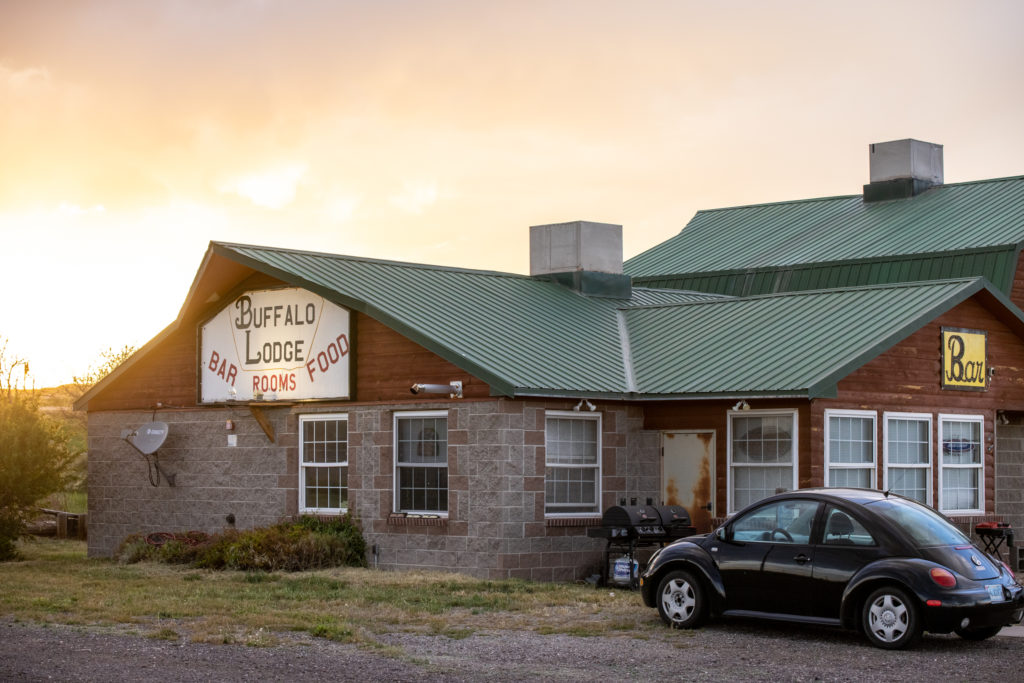
Lilly’s friend and former classmate, LaCynda Fortik, co-owns and manages the Buffalo Lodge, the town’s one hotel.
Like the Millers, they, too, have returned home to live in he community they love while helping it thrive.
Chugwater Mayor Carol Ash would like to add more overnight lodging to cater to tourists so area ranches could offer day trips, much like a working dude ranch, for those wanting to get a taste of the local culture. She’d also like to see the old wagon train trail ride return.
Ash said she would also like to see restoration o the old hotel in downtown Chugwater, which has been closed for as long as anyone can remember. Although Arden’s dad recalled a family “of hippies” living in it during the 1970s, they kept to themselves and didn’t do much with the community.
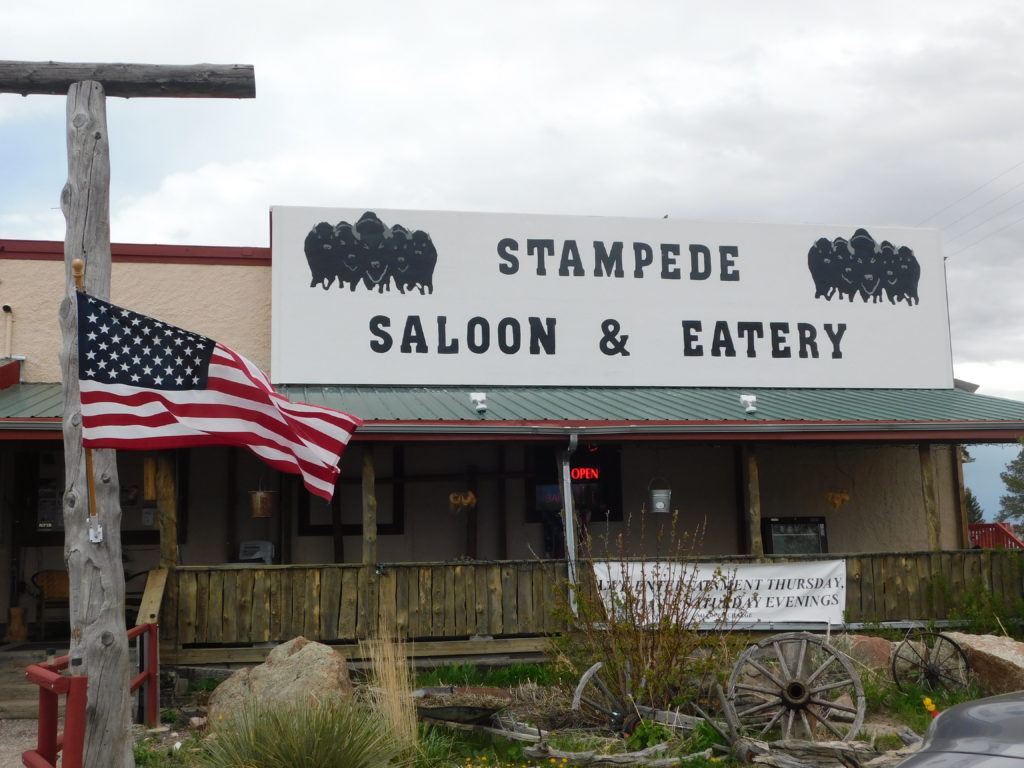


Ash said she’s been in talks with the owner of the dilapidated building to see what options there might be for either restoring or rebuilding it.
The influx of new businesses is a good sign, Ash noted, and show that small towns like Chugwater have a lot to offer both visitors and locals.
Over the years, businesses and restaurants have come and gone, but the one thing that has remained consistent is the population, hovering around 200 to 300 people, contrary to the latest Census numbers.
The 2020 Census counted 175 residents, which Ash disputed, claiming the population was undercounted as a result of restrictions surrounding the coronavirus pandemic.
The town is regrouping, Ash said, and taking steps such as making sure that some of the long-standing buildings like the library and others are brought up to code without changing their integrity.
“We want to bring back history without changing the history,” she said.
She’s excited to see the new transplants and locals returning home to open their businesses and raise families.
“In our hectic world of so much chaos and anger in the news, this is one place where people can come to find a community that loves and takes care of each other,” she said. “It’s a step back in time where we can remember that it wasn’t always this rough.”

